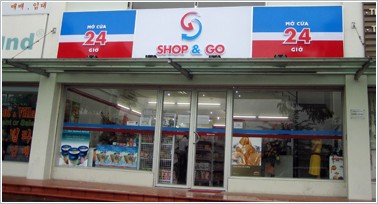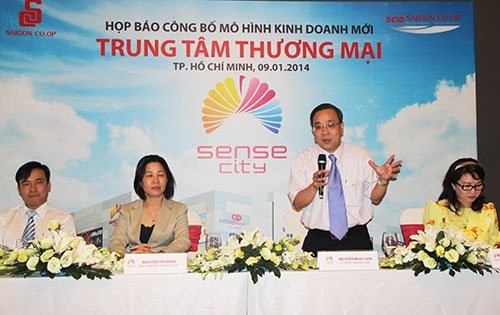(VOVworld) - Vietnam’s economy is forecast to continue facing difficulties this year, with a gloomy market, low purchasing power, and difficult access to capital. Against this background, many enterprises in Ho Chi Minh City are trying to consolidate their operations, discover market needs, and figure out a way to grow.

Since 2006, there are several chains of convenience stores in Vietnam, mostly seen in Ho Chi Minh City. The 3 most popular ones are Shop & Go, Circle K and Family Mart.
|
Established 5 years ago when lots of leather shoe companies in Ho Chi Minh City were going out of business or temporarily suspending their operation, Vien Thinh Footwear Company has achieved an annual growth of 30%, thanks to its success in expanding its market to rural areas. Each year Vien Thinh has invested tens of thousands of US dollars in upgrading production lines to create breakthroughs in fashion footwear. 80% of Vien Thinh’s footwear products branded Vitco, Rich Ever, and Hodono, are available nationwide. Lam Tung Quan, the company’s Deputy Director, says:
“The domestic market has good potential but requires a lot of study. Vien Tinh is Vietnam’s leading footwear producer with all imported production lines and technologies. Even our personnel have had much experience in working for foreign companies.”

Nguyen Ngoc Hoa (standing), chairman of Saigon Co.op, announces the Sense City model on Thursday - Photo: Hung Le
|
Currently, each enterprise in Ho Chi Minh City is searching for its own path to continue growth. Many of them have invested in production lines and infrastructure to tap the domestic market. Saigon Coop for example, has developed new shops while boosting cooperation with domestic partners. It has also increased investment in logistics with a focus on re-programming its network to better serve inventory and supply needs for supermarkets and convenience stores. President of Saigon Coop’s Board of Directors Nguyen Ngoc Hoa comments:
“We’ll continue a strategy of diversifying retail models and perfecting new form including hypermarket chains and the commercial center chain Sense City. In addition, we’ll focus on improving and investing more in developing logistic systems.”
The common point of most Vietnamese companies is that they are restricted by low capital and management capacity, old production technology, and weak protection and promotion of brands. According to Pham Ngoc Hung, Vice President of the city’s Business Association, “the first thing domestic companies should do now is to review their advantages - what are the strongest and weakest points - then learn the market needs to work out the most suitable strategic solution. The most importance is to choose products that can be highly competitive and developed sustainably. But they must be accepted by the market and match the company’s financial capacity and core business values.”
Economists say that domestic businesses will face stiff competition when Vietnam signs the Trans-Pacific Partnership Agreement under which import duties for all items will be eliminated. As a result, 2014 will prove a challenging year for domestic enterprises.